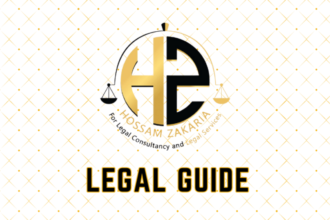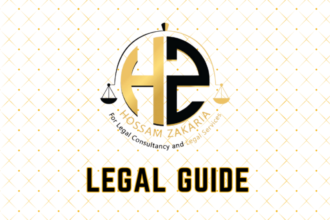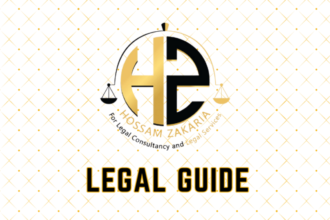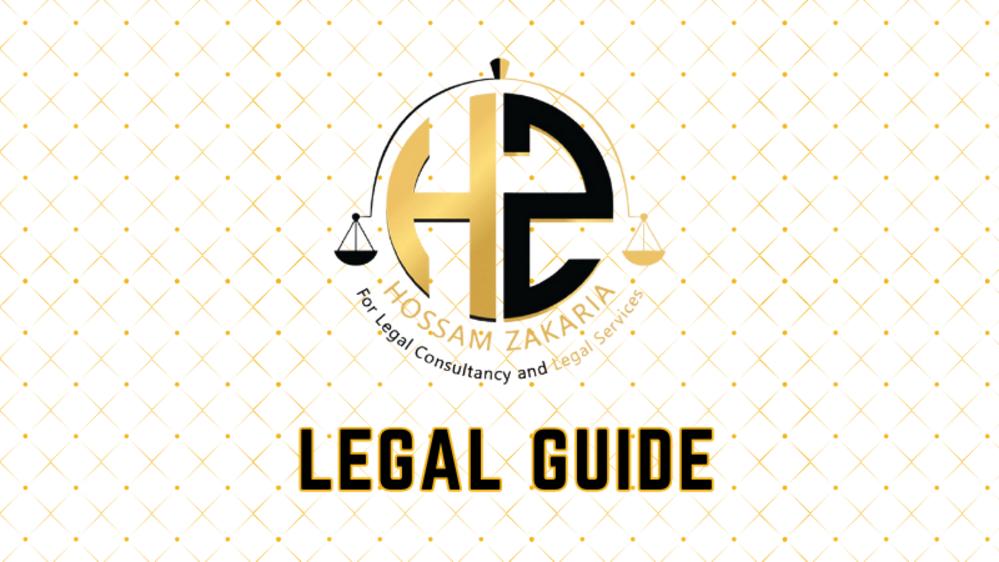Introduction: Strategic Cross-Border Aircraft Leasing for UAE Enterprises
As the aviation sector in the Gulf Cooperation Council (GCC) continues to flourish, aircraft leasing has evolved into a critical commercial activity for UAE businesses expanding into Qatar. Recent regulatory changes in both jurisdictions amplify the importance of legal compliance and cross-border risk management for lessors, operators, and financiers. Navigating the complexities of Qatari aviation law is now a business imperative, not a mere formality. This guide offers a consultancy-grade analysis tailored for UAE stakeholders, providing actionable legal insights on structuring, compliance, and mitigation strategies for aircraft leasing operations in Qatar under the latest regulatory frameworks.
Aircraft leasing is more than a mere commercial transaction; it is governed by a complex matrix of interrelated domestic laws, international conventions, and bilateral agreements. For UAE companies seeking to enter or optimize their presence in Qatar, the recent legal reforms—including updates to Qatar Civil Aviation Law, the influence of the Cape Town Convention, and evolving Central Bank and regulatory requirements—create both new opportunities and compliance challenges. This article provides a deep dive into these laws, regulatory trends, risk landscapes, and practical compliance strategies, ensuring your enterprise remains ahead of the curve in GCC aviation leasing.
Table of Contents
- Legal Framework Overview: Qatari Aviation Law and Its Relevance to UAE Businesses
- Recent Changes and Industry Drivers: Why Now Is Different
- Key Legal Provisions Affecting Aircraft Leasing in Qatar
- Comparison: UAE and Qatari Aircraft Leasing Law
- Structuring Aircraft Leases: Legal and Commercial Best Practices
- Case Studies and Practical Examples
- Compliance Risks and Regulatory Pitfalls
- Strategic Compliance Strategies for UAE Businesses
- Conclusion: Future Trends and Proactive Compliance
Legal Framework Overview: Qatari Aviation Law and Its Relevance to UAE Businesses
Understanding the Qatari Legal Context
The core legal foundation for civil aviation in Qatar is established by Law No. 15 of 2002 promulgating the Civil Aviation Law, as amended by subsequent regulations and decrees. This law, administered by the Qatar Civil Aviation Authority (QCAA), sets out extensive requirements for aircraft registration, leasing, operation, and safety. For UAE businesses, these provisions interact with the UAE’s own aviation regulations enacted under Federal Law No. 20 of 1991 and the more recent updates reflected in various Cabinet Decisions and Ministerial Circulars.
Both Qatar and the UAE are signatories to the Cape Town Convention on International Interests in Mobile Equipment (2001) and its Aircraft Protocol, providing additional international safeguards—including asset-based security and creditor rights. However, key procedural, licensing, and operational requirements vary between the jurisdictions, necessitating careful legal engagement at each stage of the leasing lifecycle.
Official Regulatory Sources
- Qatar Civil Aviation Law No. 15/2002 (as amended)
- QCAA Regulations and Circulars
- UAE Federal Law No. 20/1991 (Civil Aviation Law)
- UAE Ministry of Justice – Cabinet Decisions related to aviation
- Cape Town Convention and Aircraft Protocol (ratified by both UAE and Qatar)
Recent Changes and Industry Drivers: Why Now Is Different
Over the past three years, key legislative and regulatory updates have transformed the leasing landscape:
- Strengthening of Regulatory Oversight: Both Qatar and UAE authorities have enhanced registration and disclosure requirements for non-domiciled lessors and lessees, including updates to KYC, beneficial ownership, and anti-money laundering (AML) obligations.
- International Alignment: Enhanced alignment with the Cape Town Convention’s protocols strengthens remedies for financiers but places greater due diligence demands on lessors.
- Reflecting Market Shifts: The post-pandemic aviation recovery, the FIFA World Cup legacy in Qatar, and increased UAE–Qatar business activity have led to more cross-border aircraft movements, driving regulatory adjustments and heightened scrutiny.
Key Legal Provisions Affecting Aircraft Leasing in Qatar
Aircraft Registration and Ownership Rights
Under Qatar Civil Aviation Law No. 15/2002, all aircraft operating in Qatar must be registered with the QCAA and enter the National Aircraft Register (Article 6). The law distinguishes between legal ownership and operational control, directly impacting lessor–lessee arrangements. Only entities meeting residency and legal status conditions (such as Qatari entities or foreign lessors with QCAA approval) may register aircraft, subject to regulatory vetting.
Approval for Non-Qatari Lessors
Non-Qatari lessors must secure specific approval from the QCAA for lease and registration transactions, including documentary authentication, legalised leases, and satisfaction of beneficial ownership disclosures. This is vital for UAE-based leasing companies or business jet owners seeking to operate in Qatar.
Lease Registration and Enforcement
Article 22 of Law No. 15/2002 requires all lease agreements affecting Qatari-registered aircraft to be submitted for notarisation and registration with the QCAA. This ensures enforceability and public notice to third parties. The law allows the QCAA to refuse or revoke registration if the lease terms contravene Qatari law, public order, or safety requirements.
Operational and Safety Compliance
Aircraft operated under a lease in Qatar are subject to stringent operational, technical, and safety inspections—mirroring ICAO standards and the latest QCAA technical circulars. Leased aircraft must also meet ongoing insurance, maintenance, and airworthiness requirements, which can vary from those in the UAE and require careful alignment of contract terms.
Tax, Currency, and Financial Controls
While Qatar does not currently levy withholding tax on lease rentals paid abroad, the Qatar Financial Centre (QFC) regime and Central Bank anti-avoidance policies impose strict currency reporting, payment routing, and audit obligations. UAE-based lessors must ensure compliance to avoid delayed or forfeited payments.
Dispute Resolution and Enforcement
Disputes arising from aircraft leases in Qatar are generally subject to Qatari jurisdiction. Parties often agree to arbitration (frequently under ICC or LCIA rules) but must ensure such clauses are compatible with local public policy and the QCAA’s decision-making powers. The recognition and enforcement of foreign judgments and arbitral awards are governed by Law No. 13/1990 (Civil and Commercial Procedures Law) and Qatar’s international treaty commitments.
Comparison: UAE and Qatari Aircraft Leasing Law
| Legal Area | Qatar Law (as of 2024) | UAE Law (as of 2024) |
|---|---|---|
| Aircraft Registration | Mandatory with QCAA; Limited to Qatari entities or approved foreign lessors | Mandatory with GCAA; Foreign owners permitted, subject to conditions |
| Operational Licences | Stringent QCAA vetting; Dual compliance for non-Qatari operators | GCAA licences with clear offshore leasing pathways |
| Lease Contract Formalities | Registration and notarisation required; Arabic translation mandatory | Registration optional but recommended for enforcement; Arabic required only for dispute submission |
| Remedies on Default | Cape Town Protocol; Local coordination needed for repossession | Strong protection of lessor rights via Cape Town and UAE law |
| Tax and Payments | No current withholding tax; Currency controls enforced | No VAT on certain leases; Fewer foreign currency restrictions |
| Dispute Resolution | Qatari courts, with option for arbitration if not contrary to public order | Wide choice of courts and institutional arbitration |
| Beneficial Ownership | Full disclosure required per AML rules | Disclosure required under MOHRE and GCAA rules |
Structuring Aircraft Leases: Legal and Commercial Best Practices
Given the regulatory environment in Qatar, UAE lessors/operators should consider the following best practices when structuring aircraft leasing transactions:
Due Diligence and Counterparty Verification
- Conduct comprehensive legal, financial, and operational due diligence on the lessee, including verifying regulatory compliance, local licensing, and beneficial ownership.
- Engage with QCAA and UAE GCAA to confirm registration eligibility and precedents.
Contract Drafting and Localization
- Draft leases in bilingual (English/Arabic) format to expedite registration and dispute resolution.
- Include specific representations, warranties, and covenants on regulatory compliance; ensure provisions for aircraft repossession are compatible with QCAA procedures and Cape Town Protocol enforcement mechanisms.
Compliance with Regulatory Filings
- File all lease documents with QCAA and ensure timely updates to registration in case of amendments or renewals.
- Keep a compliance calendar to meet reporting obligations (e.g., insurance renewals, airworthiness certificates).
Tax Structuring and Financial Flows
- Route payments through transparent, approved banking channels in Qatar and cross-check for current restrictions or reporting obligations.
- Consider Qatar Financial Centre pathways for finance leases or split-ownership arrangements; consult with UAE and Qatari tax advisors on evolving rules regarding VAT and transfer pricing.
Dispute Resolution Clauses
- Negotiate neutral law and forum (e.g., English law + LCIA/ICC arbitration) for larger transactions, while maintaining fallback clauses for Qatari law compliance and enforcement.
- Address local public policy exceptions to ensure enforceability in Qatari courts.
Case Studies and Practical Examples
Case Study 1: UAE Lessor to Qatari Airline—Lease Registration Failure
Scenario: A UAE-headquartered aircraft leasing company entered into a dry lease with a Qatari airline but failed to register the contract with QCAA. During a periodic inspection, the authorities discovered non-compliance, resulting in suspension of the airline’s operating permit and regulatory penalties for both parties.
Analysis:
- Legal Shortcoming: Non-registration rendered the lease unenforceable under Qatari law and exposed both parties to operational and reputational risks.
- Recommendation: Engage local legal counsel at the pre-signing stage to ensure all formalities are met, including notarisation and regulatory submission.
Case Study 2: Cape Town Protocol Enforcement—Repossession Dispute
Scenario: A UAE lessor sought repossession of a defaulted aircraft leased to a Qatari corporate jet operator. Despite contractual Cape Town Convention protections, local court injunctions delayed delivery.
Analysis:
- Legal Dynamics: While international remedies are available, practical enforcement hinges on local court cooperation and QCAA direction.
- Mitigation: Incorporate robust local counsel involvement and pre-approval of self-help remedies with QCAA before entering the market.
Visual/Diagram Suggestion:
We recommend placing a process flow diagram detailing the aircraft lease registration steps in Qatar, from agreement drafting to post-registration compliance. This will clearly illustrate the critical path for legal and operational compliance for UAE clients.
Compliance Risks and Regulatory Pitfalls
Risks of Non-Compliance
- Administrative sanctions ranging from fines to suspension of operations for lessee and lessor alike
- Legal unenforceability of the lease contract in Qatari courts
- Potential regulatory blacklisting and reputational damages
- Inability to repossess aircraft efficiently, even under Cape Town Protocol provisions
- Tax and currency repatriation disputes, leading to delayed or lost rental payments
| Breach Type | Qatar Penalty | UAE Penalty |
|---|---|---|
| Non-registered Lease | Fines up to QAR 500,000; lease unenforceable | Administrative warnings; limited practical effect if not contested |
| Missing Insurance/Technical Docs | Aircraft grounding; operator permit suspension | Fines and possible suspension |
| Failure to Disclose Beneficial Ownership | Lease termination; reporting to AML authorities | Potential fines; reported to MOHRE |
Strategic Compliance Strategies for UAE Businesses
Compliance Checklist for Aircraft Leasing in Qatar
- Verify QCAA-approved registration pathways for the aircraft and lease party
- Prepare compliant, notarised, and bilingual lease documentation
- Complete AML/KYC and beneficial ownership disclosures
- Align insurance, maintenance and technical compliance with QCAA regulations (not merely UAE norms)
- Engage local counsel to monitor post-registration compliance and interface with QCAA on ongoing regulatory matters
Role of UAE Legal Advisors in Cross-Border Leasing
- Coordinate legal due diligence and contract review across both jurisdictions—including UAE Ministry of Justice and QCAA requirements
- Advise on dispute resolution structuring, tax implications, and enforcement strategies
- Monitor for legal reforms and updates to aviation or AML regulations that could impact ongoing leases
Conclusion: Future Trends and Proactive Compliance
The interplay between Qatari and UAE aviation law is dynamic and subject to ongoing reform. For UAE businesses engaged in or contemplating aircraft leasing in Qatar, the stakes have never been higher: non-compliance can result in rapid escalation from regulatory setback to existential operational threat. By adopting a structured, informed compliance and risk mitigation strategy—grounded in legal due diligence, proactive registration, and continuous monitoring—UAE companies can not only unlock commercial opportunities in the Qatari market, but insulate themselves from costly and disruptive legal surprises.
Looking ahead, we anticipate further moves towards regulatory harmonisation, deeper scrutiny of beneficial ownership and AML procedures, and greater reliance on digital platforms for aircraft and lease registration—as signalled by both Qatar’s and the UAE’s legislative reform agendas through 2025. Engaging with specialized legal counsel, maintaining robust compliance frameworks, and staying alert to legislative changes will be the hallmarks of successful, resilient Gulf aviation leasing strategies. UAE legal consultancies stand ready to guide clients through this evolving landscape, ensuring both opportunity and compliance go hand-in-hand.
Visual Enhancement Suggestions
- Process Flow Diagram: Steps for Lease Registration and Regulatory Compliance in Qatar
- Checklist Table: Points for Routine Compliance Monitoring for UAE Lessors
- Side-by-Side Law Charts: Key changes in lease registration and enforcement (2022 vs 2024)



